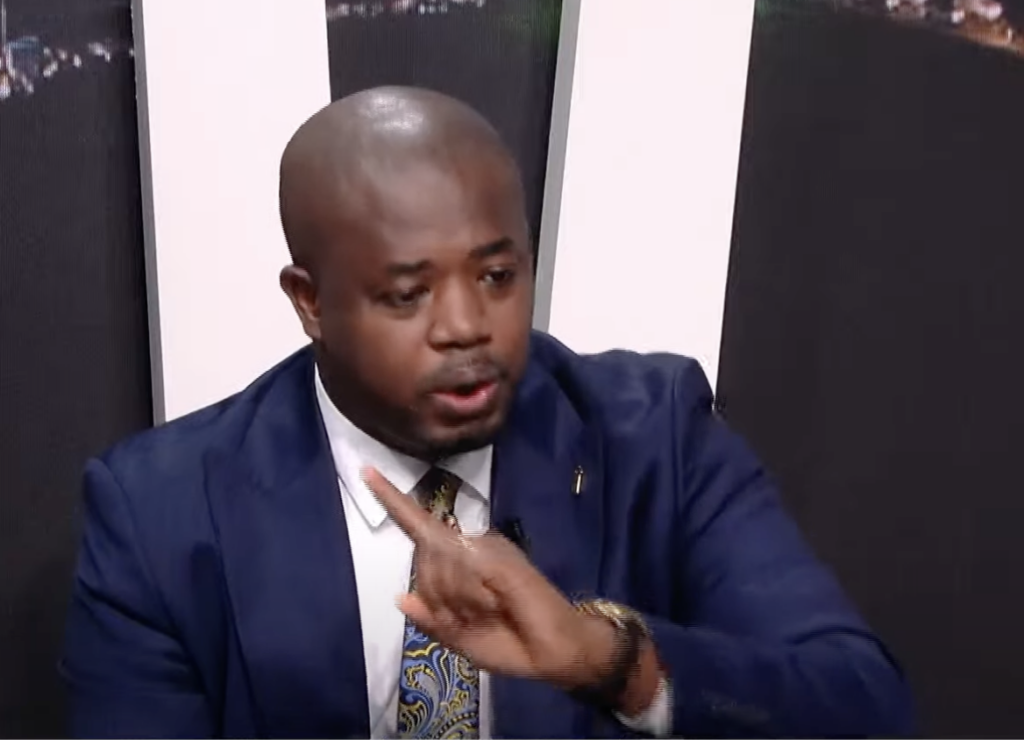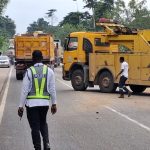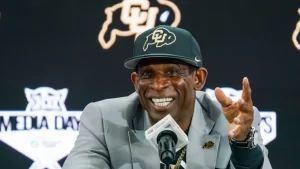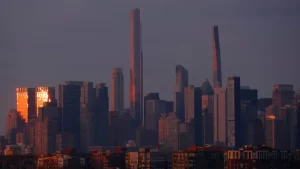
‘Mahama has no interest in Bawku conflict’ – Edudzi Tamekloe
The Legal Affairs Director of the governing NDC, Godwin Edudzi Tamekloe, has vehemently refuted attempts to link President John Dramani Mahama to the ongoing Bawku conflict, asserting that the President holds “no personal interest” in the deeply entrenched chieftaincy dispute.
His remarks came amidst a heightened political blame game surrounding the protracted crisis in the Upper East Region.
Speaking passionately on the issue, Mr Tamekloe declared, “Nobody will be permitted under President John Dramani Mahama to attempt creating a state of insecurity. No, it’s a narrative that some people want to build, but it won’t work. President John Dramani Mahama does not have any personal interest in that conflict. None whatsoever.”
This strong response comes as social media commentary has sought to politicise the Bawku conflict by attempting to associate it with the current administration.
Mr Tamekloe directly challenged these narratives, questioning the true motive: “I’ve seen some mischief on social media by our friends in the NPP, an attempt to say, oh, and President Mahama, and today there is this. Those who do those things, are you really interested in peace in that community?”
Mr Tamekloe underscored the profound human element of the conflict, urging a focus on peace rather than political point-scoring.
He highlighted the inherent unity between the feuding Kusasis and Mamprusis, tracing their shared ancestry to the larger Mole-Dagbani ethnolinguistic group of northern Ghana.
“Look, Kusasis, Mamprusis, I know; and I have personal friends who share both parentage,” he explained. To illustrate this point, he cited the diverse composition of his own law firm, Ayine and Partners: “We are three; I, Dr. Ayine and Mahama Ayariga. Mahama Ayariga’s mother is Mamprusi, and the father is a Kusasi, you understand? So they are all one people. The blood that flows through them is one. In most literature, they are called the Mole-Dagbani stock. That has always been the narrative. They are one people with a common destiny.”
This historical and familial context serves to dismantle the notion of a fundamental, irreconcilable ethnic divide, positioning the conflict more as a localised chieftaincy dispute exacerbated by external factors and, increasingly, criminal elements.
Mr Tamekloe painted a grim picture of the conflict’s devastating impact on the region.
He recounted a recent conversation with the North East Regional Minister, who revealed the extent of the lawlessness: “He said, look, Edudzi, to the extent that some people will even come and destroy my own car; that should tell you the extent to which nobody is safe.”
The Bawku area, known as a major producer of onions and other food items for national consumption, has seen its agricultural and trading activities crippled.
The Upper East Region, a key agricultural hub, heavily relies on the stability of such areas for its contribution to national food security.
The constant violence also deters investment, inhibits development, and forces many residents to flee, exacerbating humanitarian concerns.
Despite the grim reality, Mr Tamekloe expressed strong confidence in President Mahama’s resolve to bring lasting peace.
“So I strongly believe that under the watch of President Mahama, the Commander-in-Chief of the Ghana Armed Forces, this matter will be dealt with. And I’m very confident that with the support of God, and with the support of citizens of this country, there will be finality.”
He highlighted President Mahama’s recent engagement with the Mamprusi people at the seat of government, “the week before” as a testament to his “commitment to getting peace there”.
This engagement, alongside ongoing efforts by the Inspector General of Police, the National Security Coordinator, and the Ministers for Defence and Interior, signals a concerted government approach.
Tamakloe concluded with a passionate appeal for unity and an end to the violence.
“The development of Ghana is linked to all the communities and tribes within us so that we can collectively contribute.”
He invoked a personal anecdote of a friend whose brother, a Ghana Immigration Service officer stationed in the area, was tragically shot on a motorbike, leaving his family devastated.
This serves as a stark reminder that the conflict’s impact extends far beyond its immediate zone, potentially affecting anyone with ties to the region.
“So I would want to use your esteemed platform to plead to all sides. Let’s put our guns, machetes, bows and arrows down. Let’s smoke the peace pipe and ensure that development will come back to Bawku,” he pleaded, emphasising the urgent need for collective action and support for the Asantehene’s ongoing peace initiatives to restore normalcy and facilitate development in the once-vibrant Bawku enclave.
DISCLAIMER: The Views, Comments, Opinions, Contributions and Statements made by Readers and Contributors on this platform do not necessarily represent the views or policy of Multimedia Group Limited.
DISCLAIMER: The Views, Comments, Opinions, Contributions and Statements made by Readers and Contributors on this platform do not necessarily represent the views or policy of Multimedia Group Limited.











